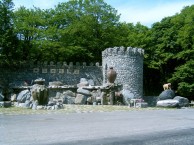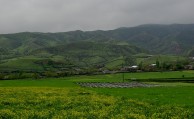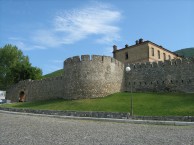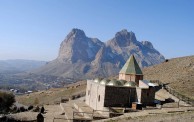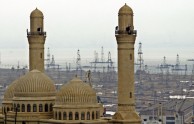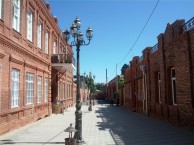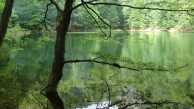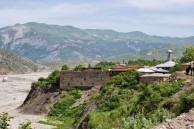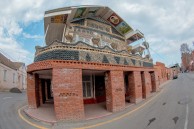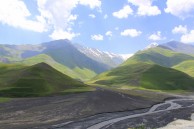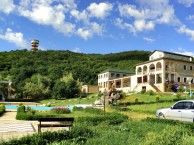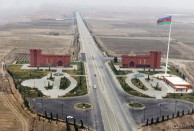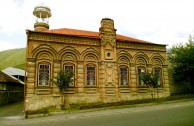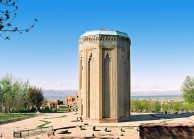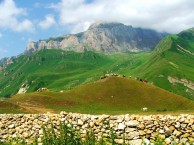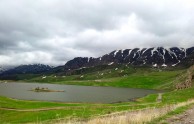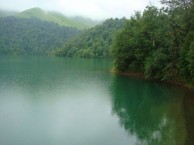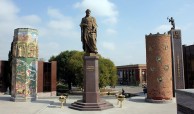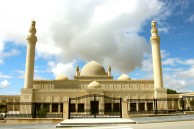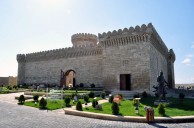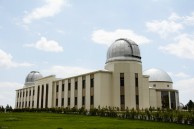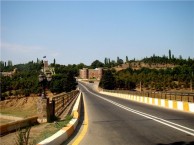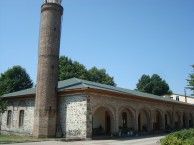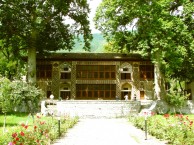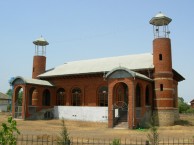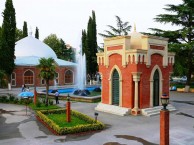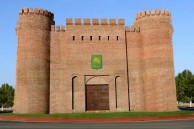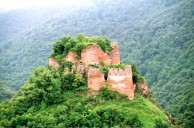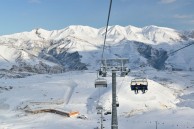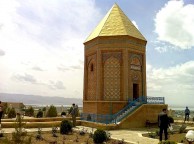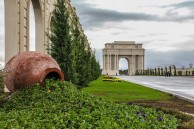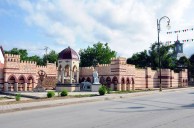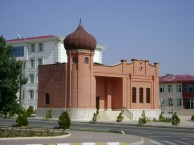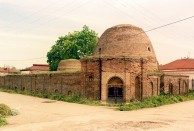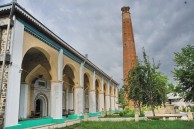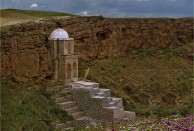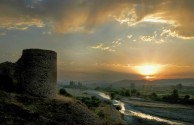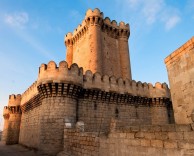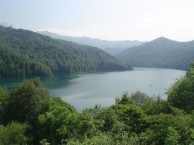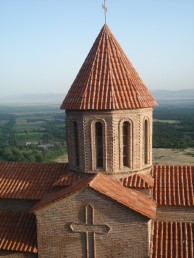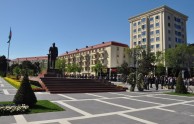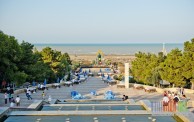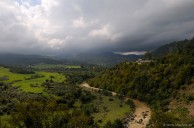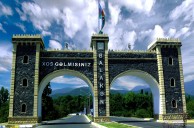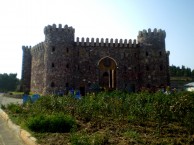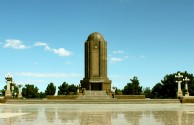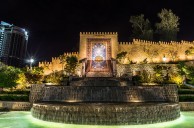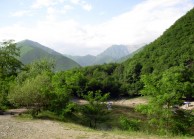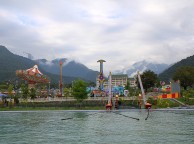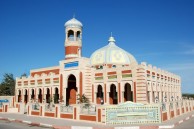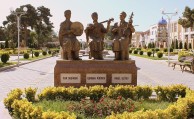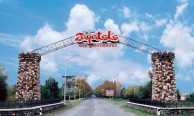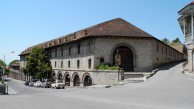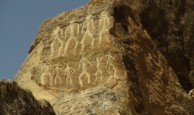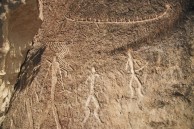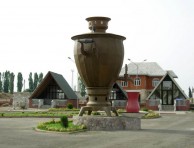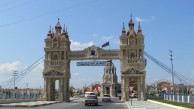COUNTRY
— AN INVITING LAND OF FIRE
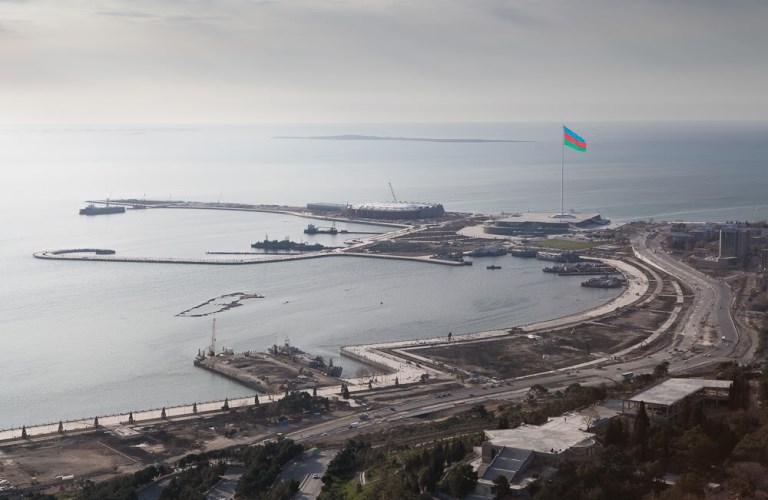
Abundant in natural resources, known for its centuries-old history and outspoken hospitality, Azerbaijan is a country linking Asia to Europe that has traditionally played an important role in the Caspian Basin and the Caucasus. Washed by the Caspian Sea, Azerbaijan shares borders with five nations. With a population of 9 million 627,9 thousand (estimated as of June 2015) and an area covering 86.6 thousand square kilometers it is the largest country in the South Caucasus.
The sheer amount of natural features like Waterfalls, lakes, natural reserves and the wildlife of Azerbaijan all create a fascinating country indeed. Ancient forts, palaces, memorial sites and rock carvings dating back to the Stone Age, as well as the famous Zoroastrian shrine are no less interesting adding to the country’s unique charm. Places with access to natural fire, sacred to the area’s indigenous residents, have retained their significance throughout the centuries and found their way into the country’s real name – Azerbaijan - the Land of Fire.
The Azykh Cave, located in Garabagh, dates back to one of the oldest periods in human history - the pre-Acheulian Era (750 thousand -1.5 million years ago). Whereas the impressive rock carvings (petroglyphs) in Gobustan are estimated to be from around 40-10 millenium B.C.
It was here in Gobustan, where the fantastic destruction of the mountains Beyukdagh, Kichikdagh, Jingirdagh, Shongardagh and Shikhgaya occurred as a 'sea of rocks'. A testimony to the past of the Azerbaijani people of the Stone Age era and subsequent periods is concentrated here in the form of rock carvings, settlements, tombstones, etc. Among them ancient rock carvings are of particular prominence.
Azerbaijan is the largest industrial hub with the highest population density in the Caucasus.
Azerbaijan’s large oil reserves are a major contributor to the economy and the completion of the Baku-Tbilisi-Ceyhan Pipeline sealed the post-soviet transition from a centrally planned economy to an oil based one. The country’s oil-gas projects of global and regional significance are in the center of the attention of the world countries.
Annual sunshine hours in Azerbaijan vary between 1800 -2900. Azerbaijan is situated on the northern extremity of the subtropical zone, in the southeastern part of the Caucasus and the northwestern part of the Iranian plateau. This complicated geographical location and landscape, with its proximity to the Caspian Sea, the effect of sun's radiation, air masses of different origin etc., contribute to its climatological diversity. The country takes pride in experiencing 9 out of 13 climatic zones.
Azerbaijan is hotbed to almost half of the world’s existing mud volcanoes. Mud volcanoes are widely spread in Azerbaijan with about 350 of the 800 volcanoes of the world located within its borders. Local people refer to them as “yanardagh” (burning mountain), “pilpila” (terrace), “gaynacha” (boiling water) and “bozdagh” (grey mountain) alongside its geographical name – mud volcanoes. Underground and submarine mud volcanoes also prevail in Azerbaijan. There are over 140 submarine volcanoes in the Caspian Sea. Eight islands in the Baku Archipelago are mud volcanoes by origination. The other kind of mud volcano is found in wells, where their activity can be observed among the strata of various ages. According to research, mud volcanoes initially began their activity in the territory of Azerbaijan 25 million years ago. This phenomenon is nominated to be listed as one of the new wonders of the world.
Public activities of the young people have increased over the past years, they are now more involved in public administration. The young people who study abroad and graduates, as well as the young experts working abroad are closely involved in the formation of the Azerbaijani diaspora.
Global changes and challenges, new development opportunities require the adoption of the Azerbaijani Youth Policy. The Presidential Decree on approval of the “2015-2025 Development Policy of the Azerbaijani Youth” is a great contribution to overall efforts.
Azerbaijan is recognized for its deeply-rooted traditions. The country’s unique culture manifests itself through music, poetry and architecture. Azerbaijan is home to a number of outstanding intellectuals, scholars, poets and musicians. The Azerbaijani literature is an integral part of the world literature with works by Nizami Ganjavi and Mohammad Fuzuli recognized as worldwide masterpieces. Musical traditions of Azerbaijan have a very ancient past with Mugham as a true gem of the country’s rich musical heritage. The Azerbaijani mugham, ashuq, carpet weaving, performance in tar [musical instrument], silk kerchief and Novruz holiday has been included into UNESCO’s Representative List of Intangible Cultural Heritage of Humanity.


